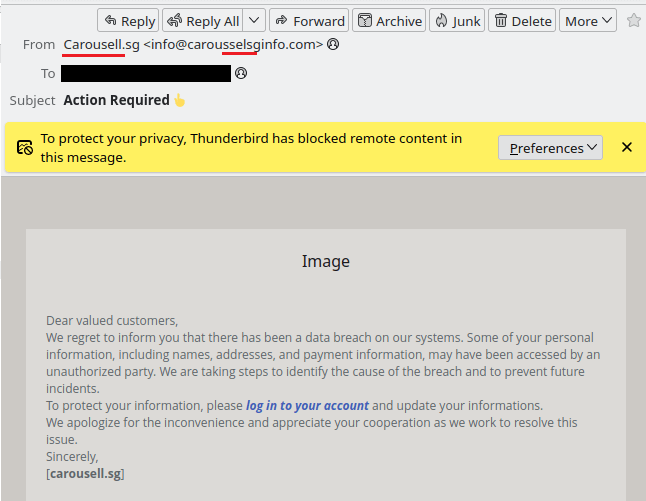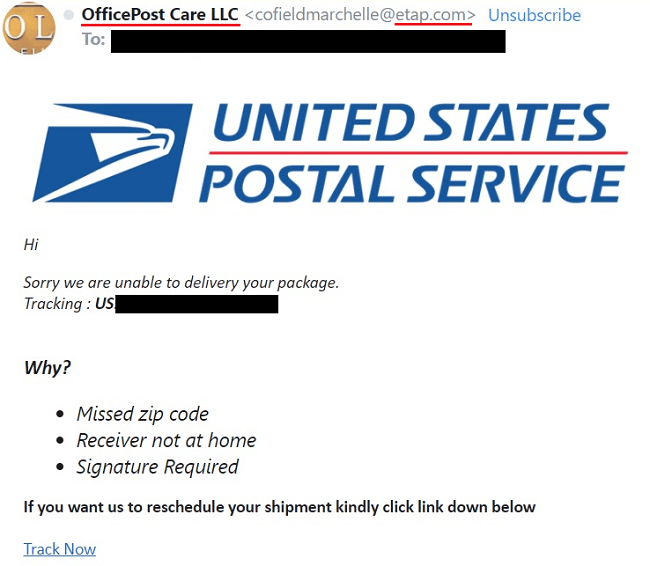What is “Seeking Partnership Investment” Email Spam
Subject: SEEKING PARTNERSHIP INVESTMENT
SEEKING PARTNERSHIP INVESTMENT
Dear friend,
Please excuse me for invading your privacy. I am currently seeking partnership investment in your country as I intend to invest in your country as long as you are able to work with me and run this business. You don't know me, but I received your information while searching for business partners in your country.
I am the chief auditing and accounting officer of a reputable bank here in the United States. In my department, we discovered an amount of USD 18.5 million in an account of one of our foreign clients (MR. ANDREAS FICHTNER from Munich, Germany) who died in a car accident in July 2015 along with his entire family. Since we received information of his death, we have been expecting his next of kin or relatives to the deceased as stated in our banking policies and laws, but unfortunately we have learned that all of his supposed next of kin or relatives died along with him in the automatic crash no one behind the claim. Upon this discovery I have decided to bring this business proposal to you and release the money to you as relatives or relatives of the deceased for security reasons and for later payment as no one is coming for this and we do not want money to go into the as an unclaimed bill to access the bank.
Upon this discovery I have decided to bring you this business proposal and to facilitate the release of this money for you as a relative of the deceased client as no one is coming for the claims. Under US financial inheritance laws, monies unclaimed by a US financial institution after a period of 15 years will be reported to the US government as unclaimed monies. So the government will officially adopt this fund at the end of this fiscal year and I don't want these funds to be reported to the US government. Rather, I want us to work together and release the funds to you so that we can issue some to charity in your country.
I will assemble all the necessary legal documents that will be used to secure our claim and all I need is your honest cooperation so we can go through with this deal. I guarantee that this will be done under a legitimate agreement that will protect you from breaking the law. Please contact me via email so we can discuss further details. I can send you my international passport and have 20+ years banking experience is 100% risk free once you follow my guidelines.Please provide the following details as we have a few days to do so. This is very important please.
1. Full Name:2. Your direct mobile number:3. Your contact address:4. Your profession:5. Your Nationality:6. Your gender / age:
I will explain it to you in more detail once I receive your reply.
Best regards,
Mr. Jackson Peterson
This e-mail is a private communication and may contain confidential information. If you are not the intended recipient, please note that any disclosure, copying, distribution or use of the information contained in or attached to this e-mail is strictly prohibited. Please notify the sender of the delivery error by replying to this message and then delete this e-mail. Thank you.
Seeking Partnership Investment email spam is a type of scam where cybercriminals send out emails pretending to offer investment opportunities in order to trick recipients into providing personal information or money. These emails typically promise high returns with little to no risk, luring victims with the prospect of easy money. However, in reality, these emails are designed to deceive and exploit unsuspecting individuals.
Seeking Partnership Investment spam campaigns can infect computers through malicious links or attachments in the email, which, when clicked on or downloaded, can install malware onto the victim’s device. This malware can then steal sensitive information, such as financial data or login credentials, and even take control of the infected computer. Interacting with Seeking Partnership Investment email scams can result in financial loss, identity theft, and even further exploitation by cybercriminals. It is important to be cautious and skeptical of any unsolicited emails offering investment opportunities, as they are likely to be fraudulent and malicious in nature.

How to stop email spam like “Seeking Partnership Investment”
You can use an anti-spam filter which will block most known sources of spam before they even reach your inbox. MailWasher is a program you may try. It filters spam and lets you preview emails on a server without downloading them onto your computer. MailWasher has customizable spam filters, uses bayesian filtering and works with all major email programs: Outlook, Outlook Express, Thunderbird, GMail, etc.
Types of spam email
Spam email messages can be approximately divided into three categories: those that prompt you to download and run something, those that ask for your personal data, and those asking you to make payments. Let’s take a closer look at each one so we can better protect ourselves from these scams.
-
Emails with attachments
In the first case the email contains an attachment which it prompts you to open. Those attachments may consist of executable files or they may be Microsoft Word or Excel documents containing malicious macro scripts. Once you launch the executable file or allow the document to run its macros, malware downloads onto your device and wreaks all kinds of havoc with it.
The malware may range from adware showing extra ads on your browsers to ransomware that encrypts your files and aks for payment to decrypt them.
-
Phishing emails
The second type of spam (phishing emails) try to trick you into entering your name, logins, passwords, credit card details, etc. on what you think are legitimate and respectable websites.
Those emails usually pretend to be messages from well-known websites that you are probably registered on, and prompt you to follow a link to their site for some reason (for example, there is something wrong with your account). The provided link leads to fake site of course, and the data you enter ends up in the hands of cybercriminals.
-
Advance-fee scam and sextortion scam emails
Finally there are the emails urging people make payments. These can be further divided into two types: the first type, asking people to invest into something, to pay some money now and get back much more later (the advance-fee scam); the second one, scaring people into paying to prevent something bad from happening.
An example of the first one is the well-known Nigerian Prince email. A example of the second is sextortion scam: emails that claim that the email author has access to the victims’s web cam and has the victims intimate videos, which the criminal threatens to publish unless paid off.

How to find out that the email is scam

- Check the sender’s address – if the address doesn’t match up with what you expect from that company, then it’s very likely that the email is scam. Be aware though that the sender address can be faked, so if the address looks legitimate it is not guaranteed that the email is legit.
- Look for spelling and grammar mistakes and weird phrasing – real emails from reputable companies are far less likely to have those.
- Watch for urgent requests – legitimate companies will never ask customers for sensitive information such as credit card numbers via email, so if an email suddenly asks for urgent action like requesting payment details within few hours, chances are high this could potentially be a scam attempt.
How to protect yourself from email scam
- Use an email filtering service – email filtering services like MailWasher Pro allow you to filter out unwanted messages before they reach your inbox. These services use sophisticated algorithms to identify suspicious content in incoming emails and block them automatically so that only legitimate messages make it through the filter.
- Avoid clicking on suspicious links – if you receive an email with a link that looks suspicious, do not click on it! Even if the sender appears familiar, chances are high that the link is malicious and could lead you down a path of malware infection or identity theft. It is best not to open any unknown links at all.
- Don’t respond directly – never reply directly to spam emails as this will confirm for spammers that your address is active which may result in more unsolicited mail being sent your way. Instead, mark these messages as “Spam” within your email client/service provider so that their filters can better detect similar types of mail next time.
- Keep software up-to-date – make sure all software installed onto devices such as computers and smartphones is kept up-to date with latest security patches released by developers; this helps reduce risk posed by cyber criminals who exploit vulnerabilities found in outdated versions of programs including email clients.
- Use anti virus protection – install reputable antivirus solutions onto any device receiving emails; most modern day anti viruses come equipped with advanced features such as real time scanning which help detect potential threats immediately upon opening files attached to emails.
